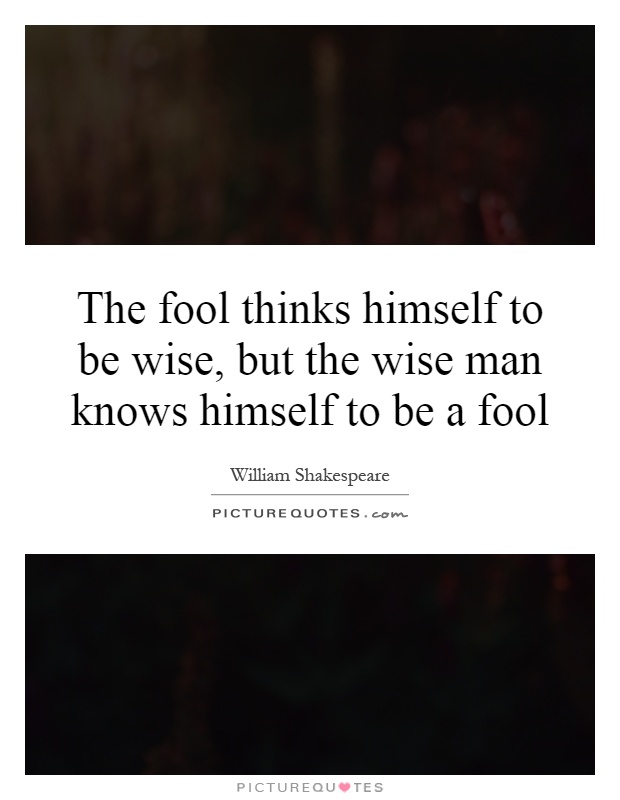The fool thinks himself to be wise, but the wise man knows himself to be a fool

The fool thinks himself to be wise, but the wise man knows himself to be a fool
In William Shakespeare's works, the theme of wisdom and foolishness is a recurring motif that is explored through various characters and situations. One of the most famous quotes that encapsulates this theme is "The fool thinks himself to be wise, but the wise man knows himself to be a fool." This quote, often attributed to Shakespeare, highlights the idea that true wisdom comes from recognizing one's own limitations and fallibility.Throughout Shakespeare's plays, we see characters who believe themselves to be wise and knowledgeable, only to be proven wrong in the end. One such character is King Lear, who in the beginning of the play believes himself to be all-powerful and wise. However, as the story unfolds, Lear's actions and decisions reveal his foolishness and lack of true wisdom. It is only through his suffering and self-reflection that Lear is able to gain a deeper understanding of himself and the world around him.
On the other hand, there are characters in Shakespeare's plays who possess true wisdom because they are aware of their own limitations and are humble enough to admit when they are wrong. One such character is the Fool in "King Lear," who despite his name, is often the voice of reason and truth in the play. The Fool's insights and observations serve as a stark contrast to the ignorance and arrogance of the other characters, particularly Lear himself.












 Friendship Quotes
Friendship Quotes Love Quotes
Love Quotes Life Quotes
Life Quotes Funny Quotes
Funny Quotes Motivational Quotes
Motivational Quotes Inspirational Quotes
Inspirational Quotes